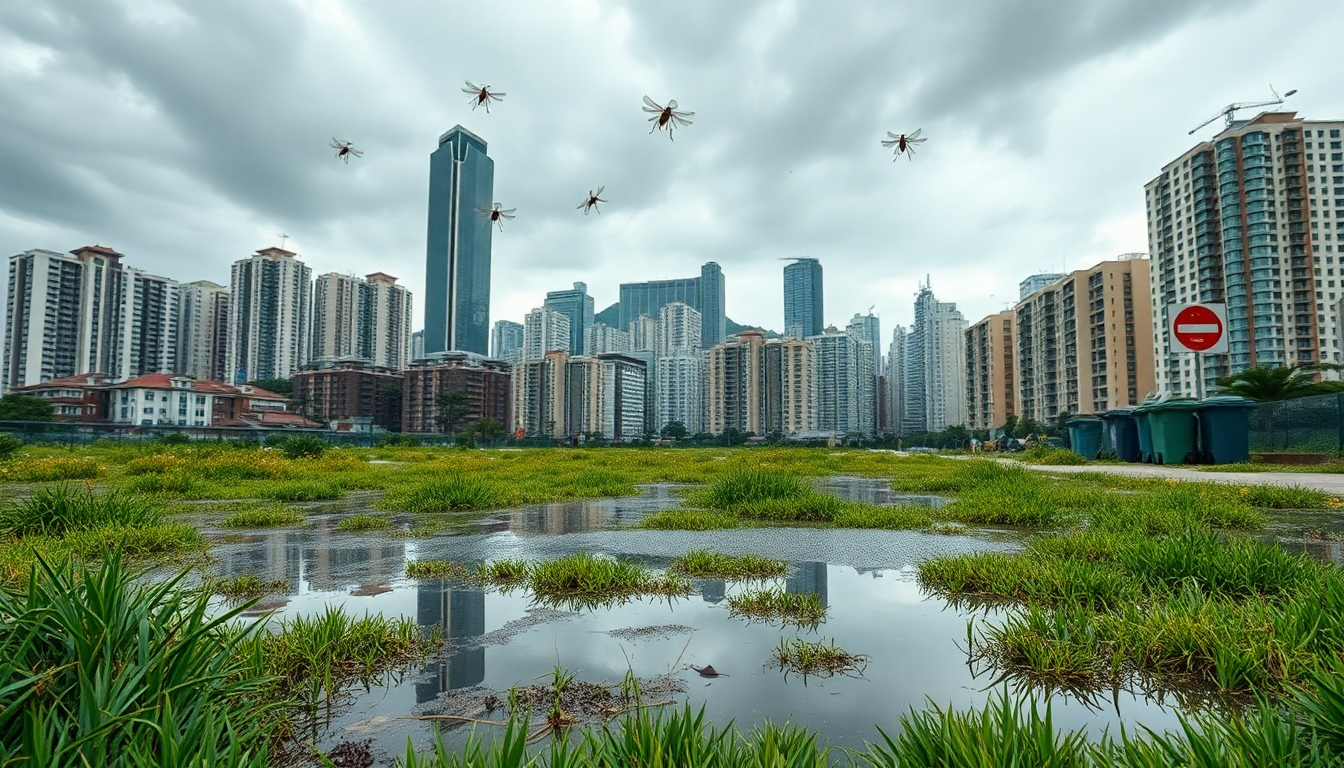Table of Contents
The recent surge in mosquito breeding in Hong Kong has raised serious concerns among health experts and government officials alike. Did you know that around 70% of the surveyed areas in the city are grappling with significant mosquito populations? With such alarming statistics, it’s clear that immediate action is necessary.
A perfect storm of unusual weather patterns, especially the prolonged black rainstorm warnings, has exacerbated this situation, pushing local authorities to ramp up their mosquito control efforts.
Understanding the current mosquito breeding landscape
Let’s take a closer look at the situation.
Recent government data shows that the city’s black rainstorm warning, which lasted over 11 hours, is now the second-longest in history. Coincidentally, this warning coincided with the first reported case of chikungunya fever in Hong Kong since 2019.
With the threat of this mosquito-borne illness looming, it’s urgent to tackle the breeding grounds that have sprung up due to stagnant water left by heavy rainfall.
Experts like Peter Leung Kwong-yuen, chairman of the Pest Control Personnel Association of Hong Kong, have sounded the alarm.
He notes that the accumulation of water due to continuous rain creates a breeding paradise for mosquito larvae. While heavy rain can wash away some of this stagnant water, it’s important to remember that mosquitoes thrive in standing water environments for breeding.
So, what can we do about it?
The implications of unchecked mosquito populations
The health implications of rising mosquito populations are serious. Chikungunya fever and other mosquito-borne diseases not only threaten public health but also impact the quality of life in the city.
Imagine dealing with increased healthcare costs and pressure on health services if outbreaks occur! The last thing Hong Kong needs, especially as it navigates the aftermath of the pandemic, is a public health crisis fueled by these pesky insects.
Moreover, the social and economic repercussions can be profound. Tourism and local businesses could take a hit if mosquito-borne diseases start spreading. So, how do we prevent this from happening?
Strategies for effective mosquito control
To tackle the growing mosquito populations, experts recommend a multi-faceted approach. One effective method is applying larvicides to stagnant water bodies to eliminate mosquito larvae before they can mature into adults. Regular inspections and clean-up efforts in public spaces can significantly minimize potential breeding sites. It’s a team effort!
Community awareness and education campaigns are also crucial. By empowering residents to take proactive measures in their own homes and neighborhoods, we can make a big difference. Simple actions, like removing standing water from gardens, cleaning gutters, and ensuring proper drainage, can greatly reduce mosquito breeding opportunities. Are you ready to play your part?
Looking ahead: The need for sustained efforts
As Hong Kong faces the immediate challenges posed by increased mosquito breeding, it’s essential for authorities to implement sustained and strategic mosquito control measures. The city’s response will not only shape the trajectory of mosquito populations in the months to come but also play a vital role in safeguarding public health.
In conclusion, while the current situation is alarming, it can be managed effectively with timely interventions and community cooperation. The ability to mitigate this crisis will showcase Hong Kong’s resilience and commitment to public health and safety. So let’s stay vigilant and proactive—together, we can tackle this challenge head-on!





